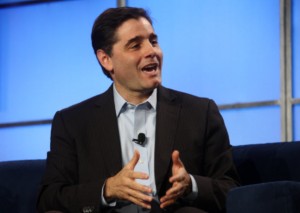
The FCC’s hearing would be yet another roadblock to the beleaguered telecom merger. On top of the Department of Justice seeking to block the deal, the attorneys general of seven states took legal steps to stop the merger back in mid-September. AT&T rival Sprint has also filed its own lawsuit.
[aditude-amp id="flyingcarpet" targeting='{"env":"staging","page_type":"article","post_id":356575,"post_type":"story","post_chan":"none","tags":null,"ai":false,"category":"none","all_categories":"mobile,","session":"C"}']Genachowski and his staff concluded that the merger would end up causing the telecommunications industry to be over-concentrated, and thus want a hearing that will make AT&T prove the deal is “in the public interest.” The hearing would be presided over by an administrative law judge who will weigh the evidence and render a judgement. After that, the FCC will make a final decision.
It might be tough for AT&T to prove the deal will work in the public’s favor. At present, there are four major carriers in the U.S., with Verizon at No. 1, AT&T at No. 2, Sprint at No. 3 and T-Mobile at No. 4. If AT&T and T-Mobile customers are combined, AT&T becomes No. 1, Verizon No. 2 and Sprint becomes far and away the smallest major carrier.
AI Weekly
The must-read newsletter for AI and Big Data industry written by Khari Johnson, Kyle Wiggers, and Seth Colaner.
Included with VentureBeat Insider and VentureBeat VIP memberships.
“The FCC’s action today is disappointing,” AT&T said in a statement. “It is yet another example of a government agency acting to prevent billions in new investment and the creation of many thousands of new jobs at a time when the U.S. economy desperately needs both. At this time, we are reviewing all options.”
Do you think the AT&T and T-Mobile merger should go through?
VentureBeat's mission is to be a digital town square for technical decision-makers to gain knowledge about transformative enterprise technology and transact. Learn More